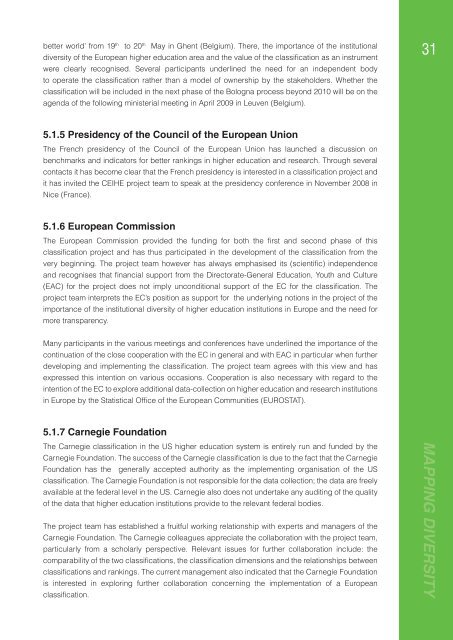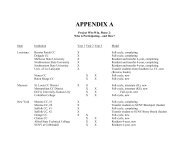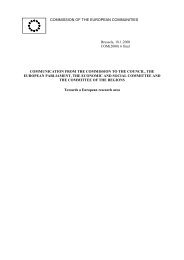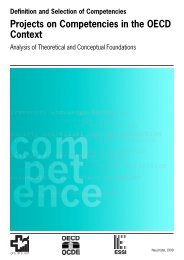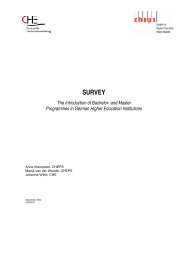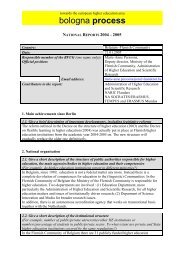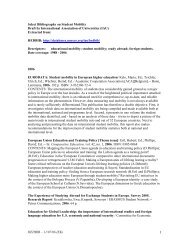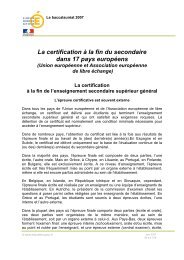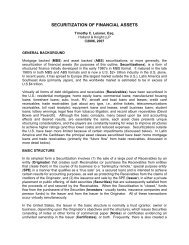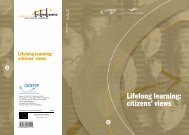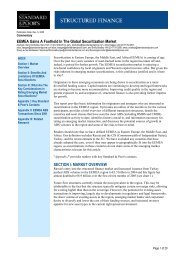Mapping Diversity: Developing a European Classification of ... - U-Map
Mapping Diversity: Developing a European Classification of ... - U-Map
Mapping Diversity: Developing a European Classification of ... - U-Map
You also want an ePaper? Increase the reach of your titles
YUMPU automatically turns print PDFs into web optimized ePapers that Google loves.
etter world’ from 19 th to 20 th May in Ghent (Belgium). There, the importance <strong>of</strong> the institutional<br />
diversity <strong>of</strong> the <strong>European</strong> higher education area and the value <strong>of</strong> the classifi cation as an instrument<br />
were clearly recognised. Several participants underlined the need for an independent body<br />
to operate the classifi cation rather than a model <strong>of</strong> ownership by the stakeholders. Whether the<br />
classifi cation will be included in the next phase <strong>of</strong> the Bologna process beyond 2010 will be on the<br />
agenda <strong>of</strong> the following ministerial meeting in April 2009 in Leuven (Belgium).<br />
31<br />
5.1.5 Presidency <strong>of</strong> the Council <strong>of</strong> the <strong>European</strong> Union<br />
The French presidency <strong>of</strong> the Council <strong>of</strong> the <strong>European</strong> Union has launched a discussion on<br />
benchmarks and indicators for better rankings in higher education and research. Through several<br />
contacts it has become clear that the French presidency is interested in a classifi cation project and<br />
it has invited the CEIHE project team to speak at the presidency conference in November 2008 in<br />
Nice (France).<br />
5.1.6 <strong>European</strong> Commission<br />
The <strong>European</strong> Commission provided the funding for both the fi rst and second phase <strong>of</strong> this<br />
classifi cation project and has thus participated in the development <strong>of</strong> the classifi cation from the<br />
very beginning. The project team however has always emphasised its (scientifi c) independence<br />
and recognises that fi nancial support from the Directorate-General Education, Youth and Culture<br />
(EAC) for the project does not imply unconditional support <strong>of</strong> the EC for the classifi cation. The<br />
project team interprets the EC’s position as support for the underlying notions in the project <strong>of</strong> the<br />
importance <strong>of</strong> the institutional diversity <strong>of</strong> higher education institutions in Europe and the need for<br />
more transparency.<br />
Many participants in the various meetings and conferences have underlined the importance <strong>of</strong> the<br />
continuation <strong>of</strong> the close cooperation with the EC in general and with EAC in particular when further<br />
developing and implementing the classifi cation. The project team agrees with this view and has<br />
expressed this intention on various occasions. Cooperation is also necessary with regard to the<br />
intention <strong>of</strong> the EC to explore additional data-collection on higher education and research institutions<br />
in Europe by the Statistical Offi ce <strong>of</strong> the <strong>European</strong> Communities (EUROSTAT).<br />
5.1.7 Carnegie Foundation<br />
The Carnegie classifi cation in the US higher education system is entirely run and funded by the<br />
Carnegie Foundation. The success <strong>of</strong> the Carnegie classifi cation is due to the fact that the Carnegie<br />
Foundation has the generally accepted authority as the implementing organisation <strong>of</strong> the US<br />
classifi cation. The Carnegie Foundation is not responsible for the data collection; the data are freely<br />
available at the federal level in the US. Carnegie also does not undertake any auditing <strong>of</strong> the quality<br />
<strong>of</strong> the data that higher education institutions provide to the relevant federal bodies.<br />
The project team has established a fruitful working relationship with experts and managers <strong>of</strong> the<br />
Carnegie Foundation. The Carnegie colleagues appreciate the collaboration with the project team,<br />
particularly from a scholarly perspective. Relevant issues for further collaboration include: the<br />
comparability <strong>of</strong> the two classifi cations, the classifi cation dimensions and the relationships between<br />
classifi cations and rankings. The current management also indicated that the Carnegie Foundation<br />
is interested in exploring further collaboration concerning the implementation <strong>of</strong> a <strong>European</strong><br />
classifi cation.<br />
MAPPING DIVERSITY


